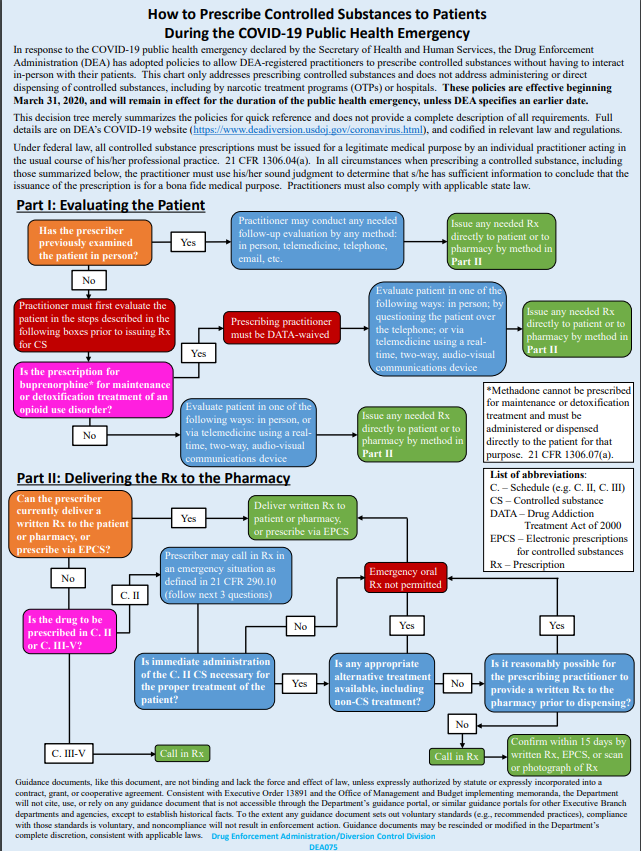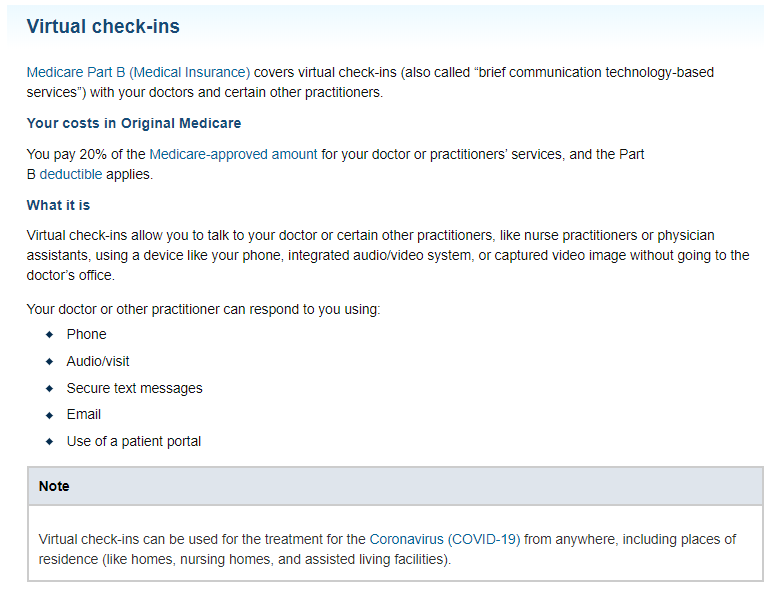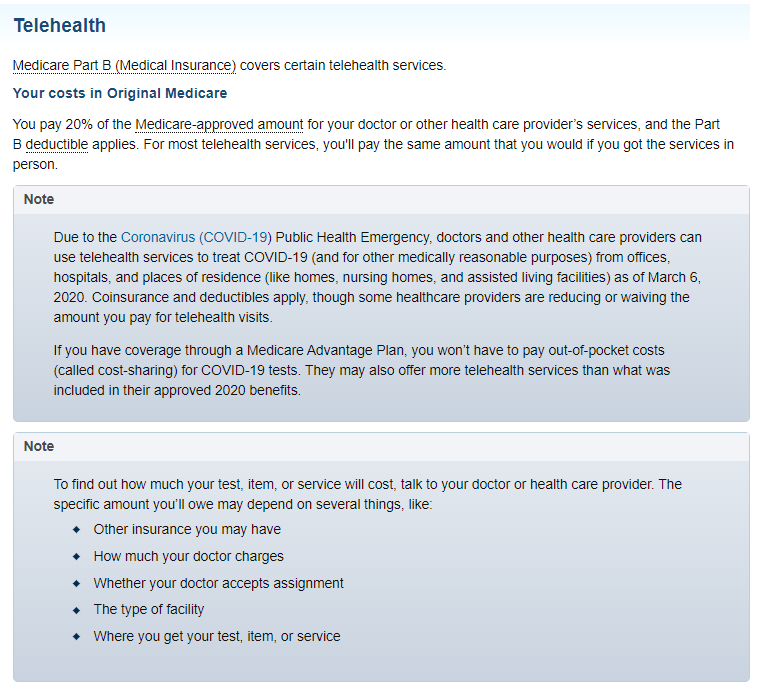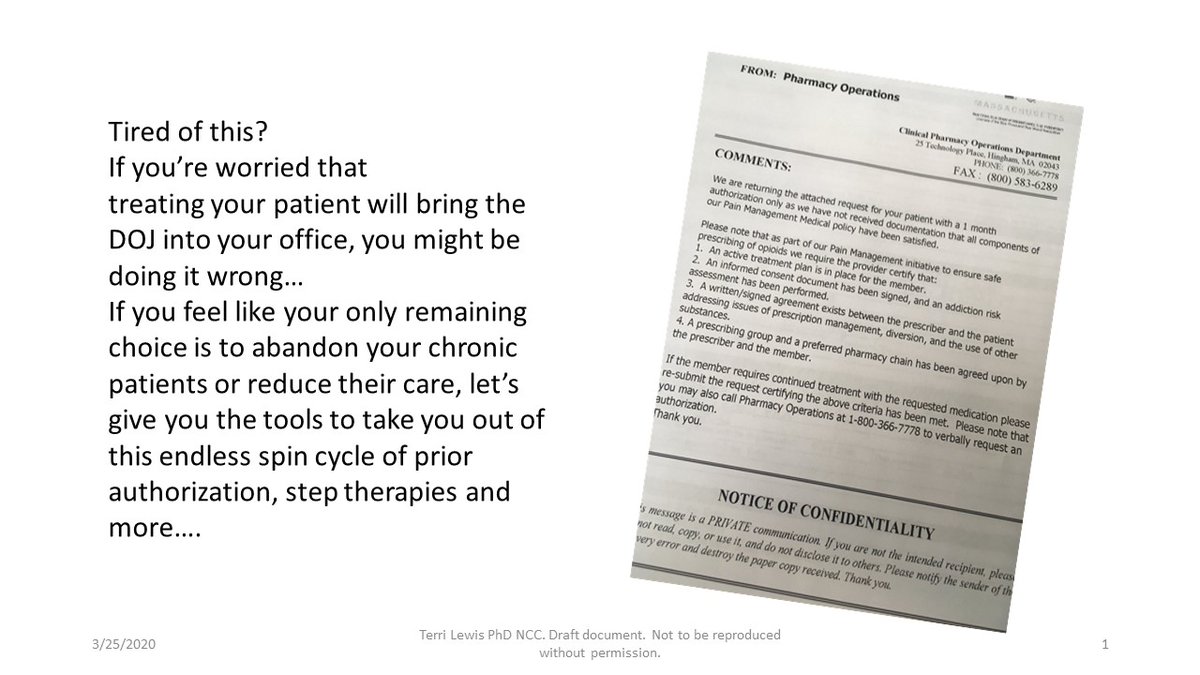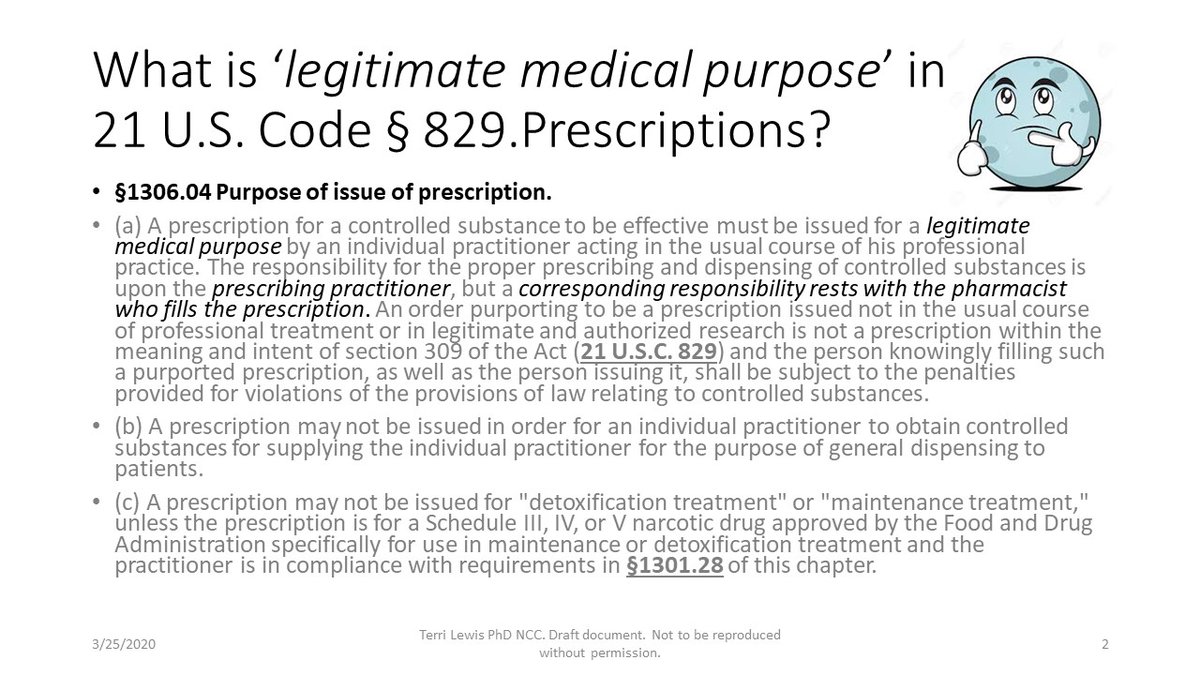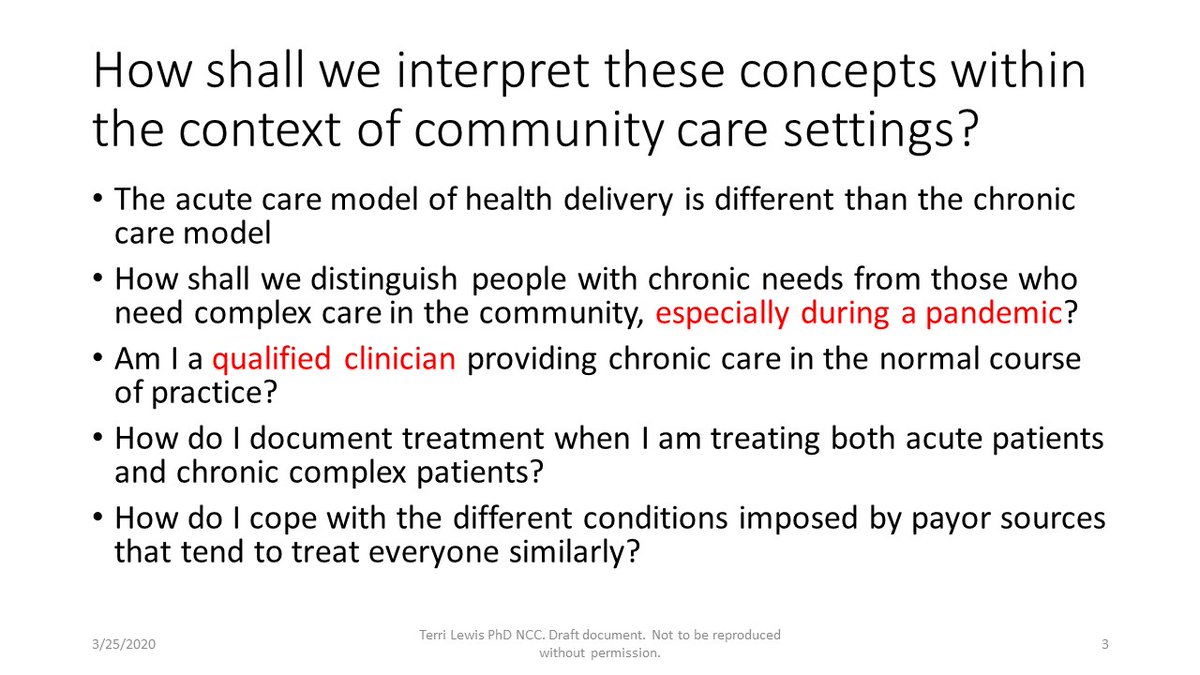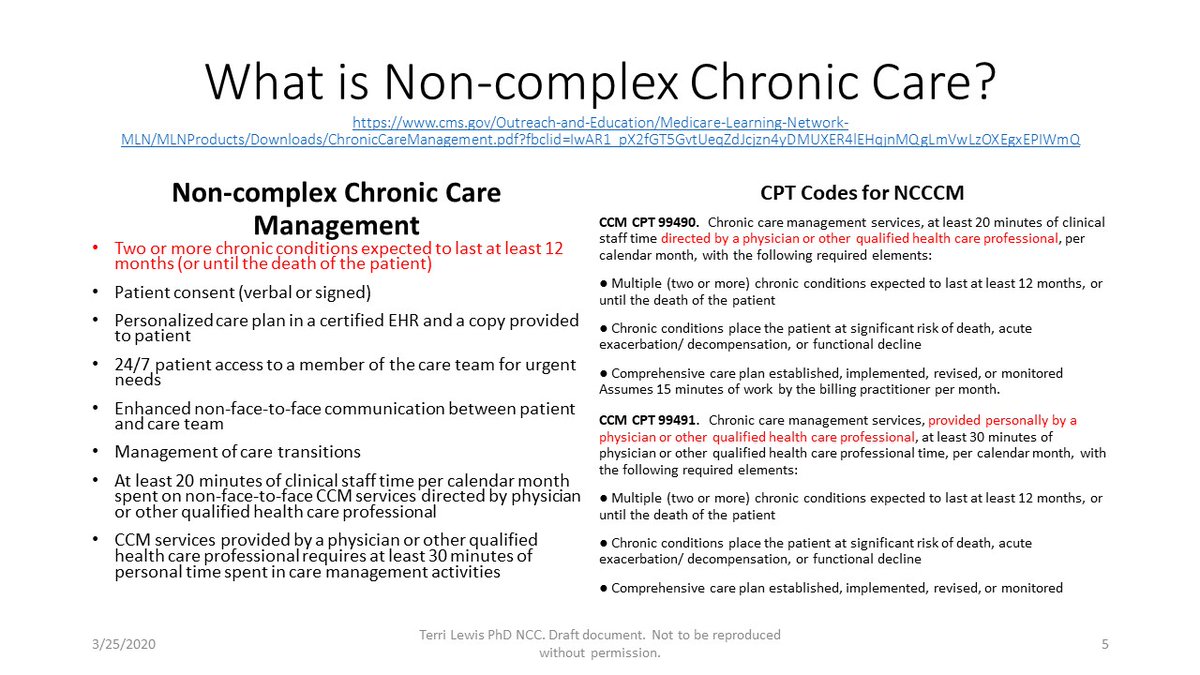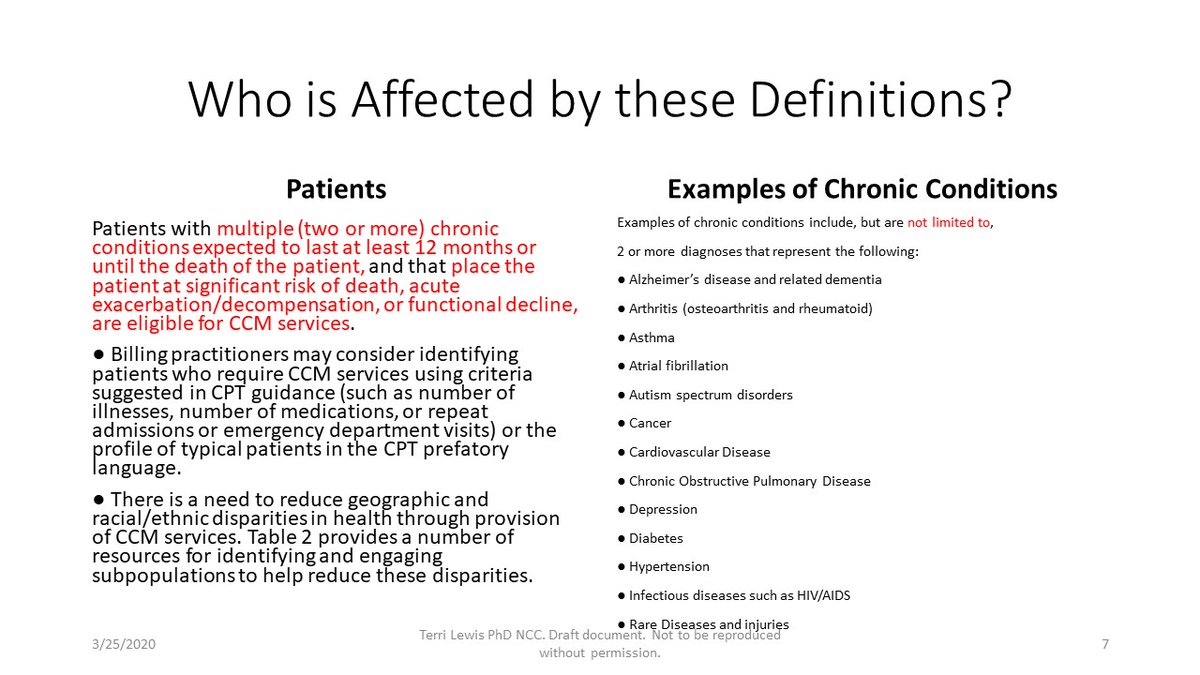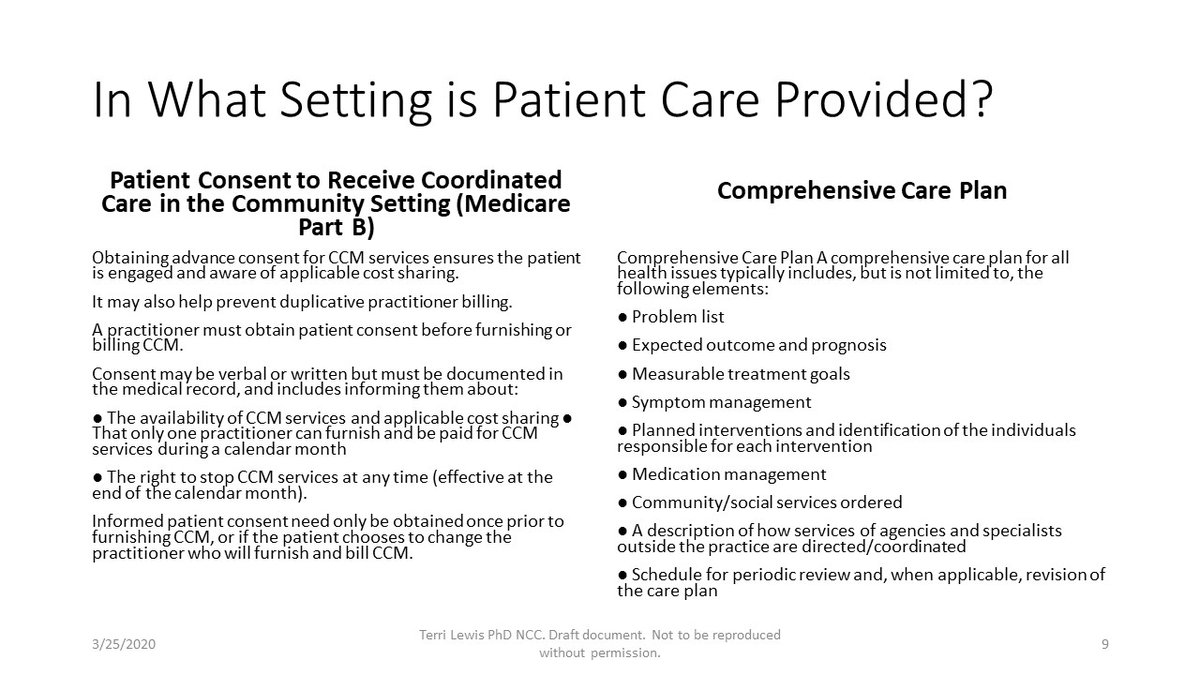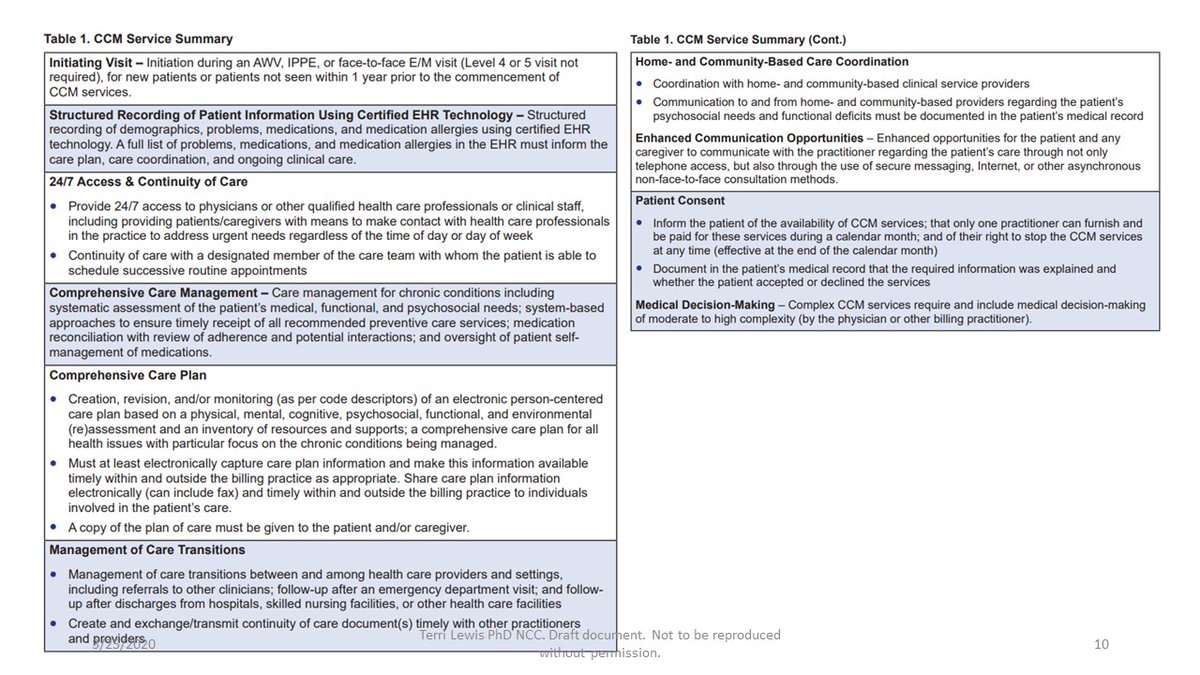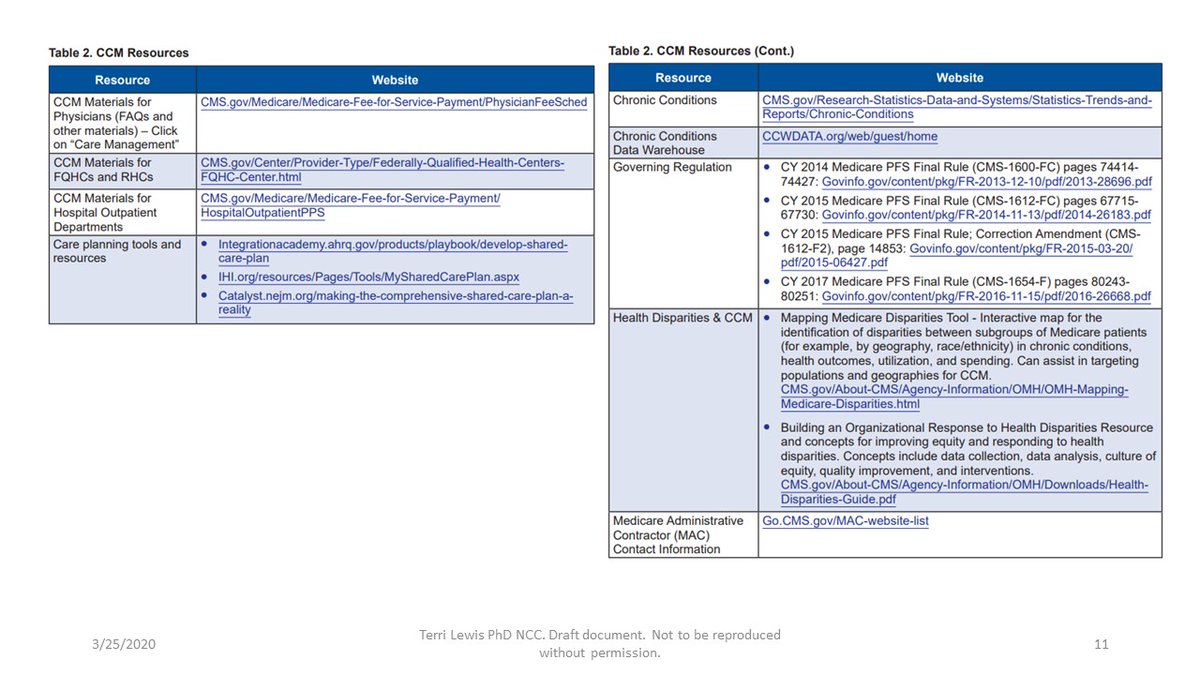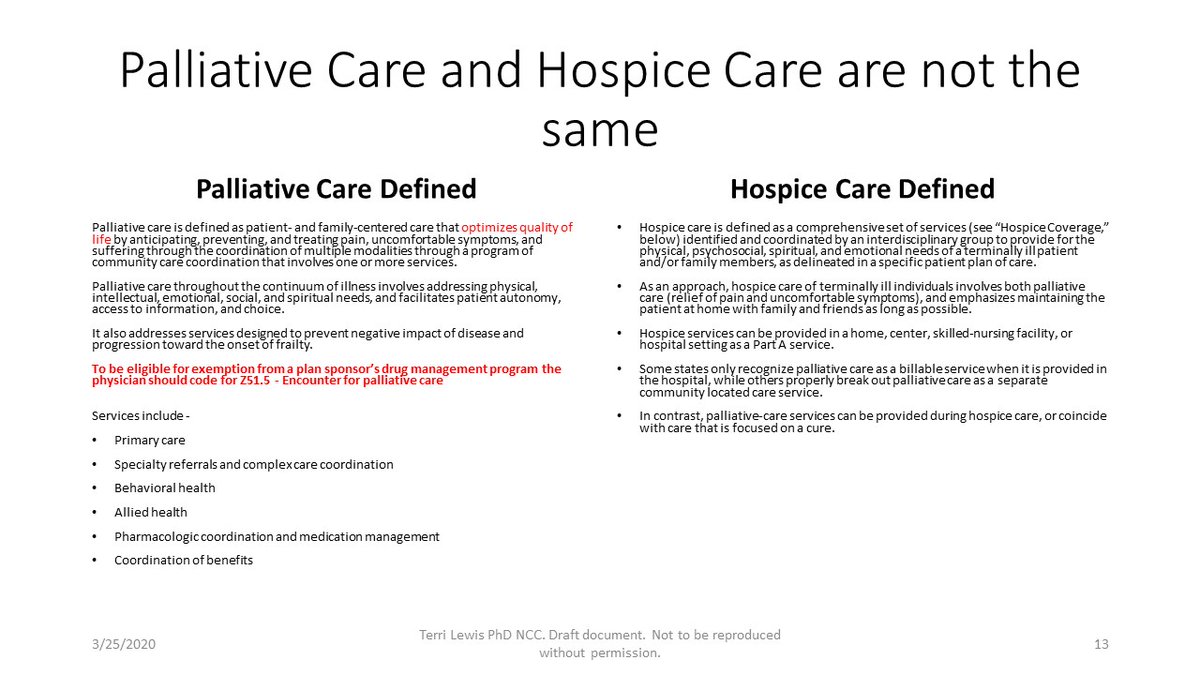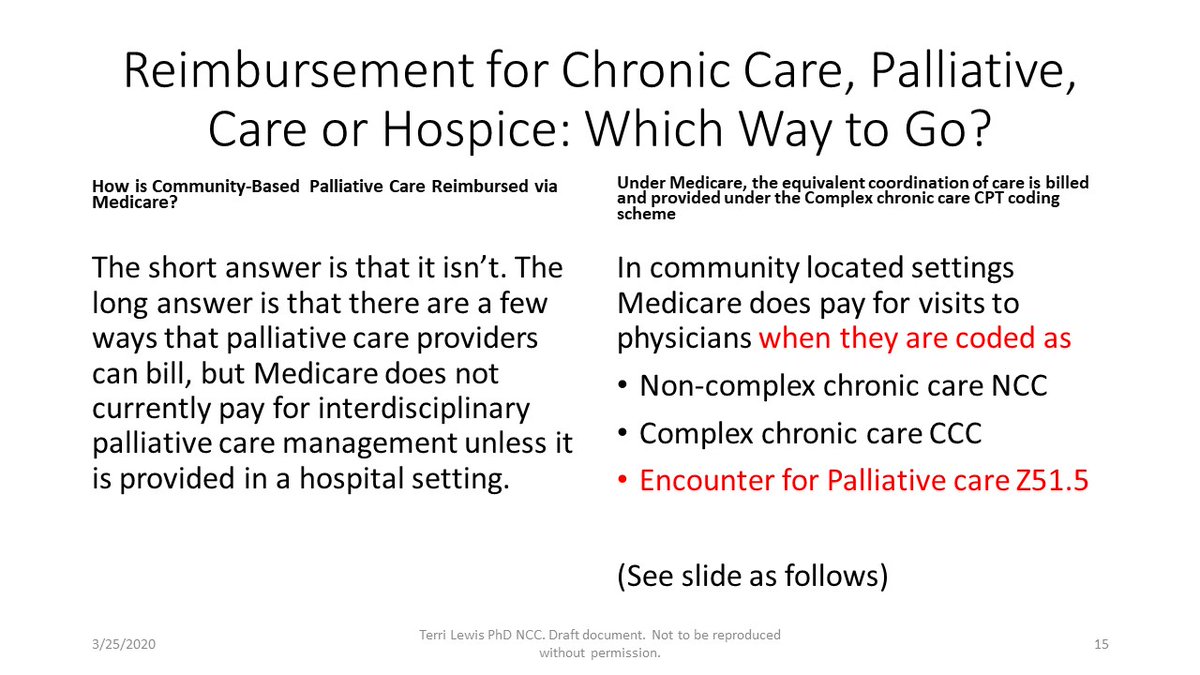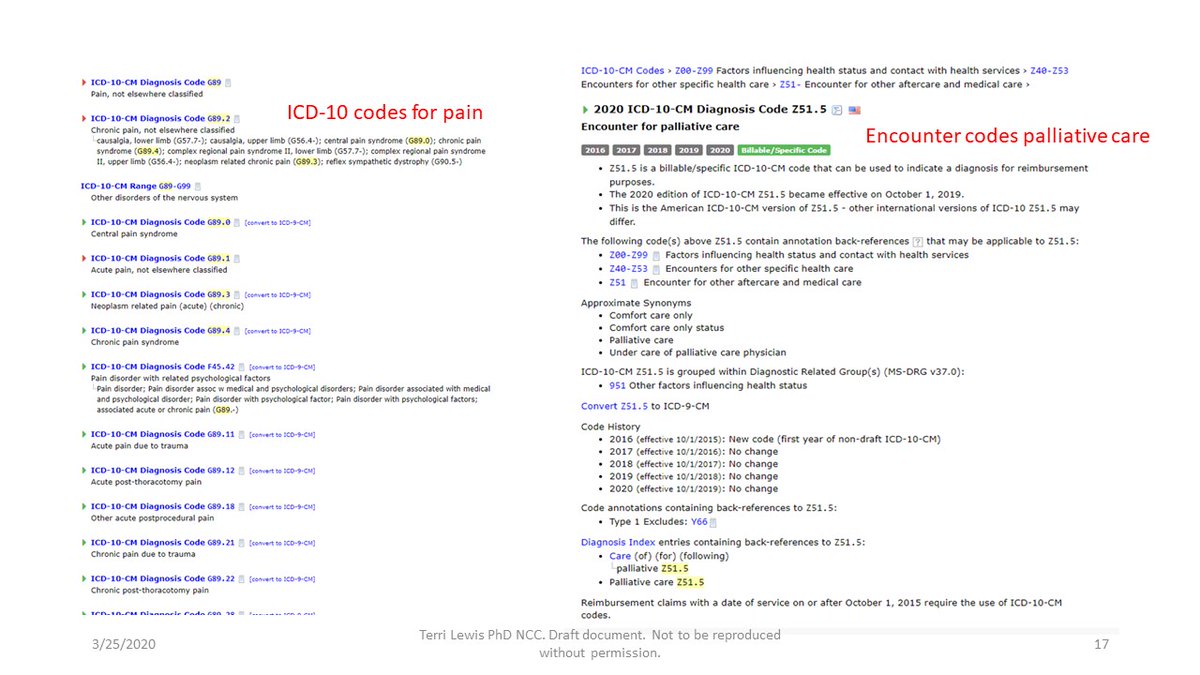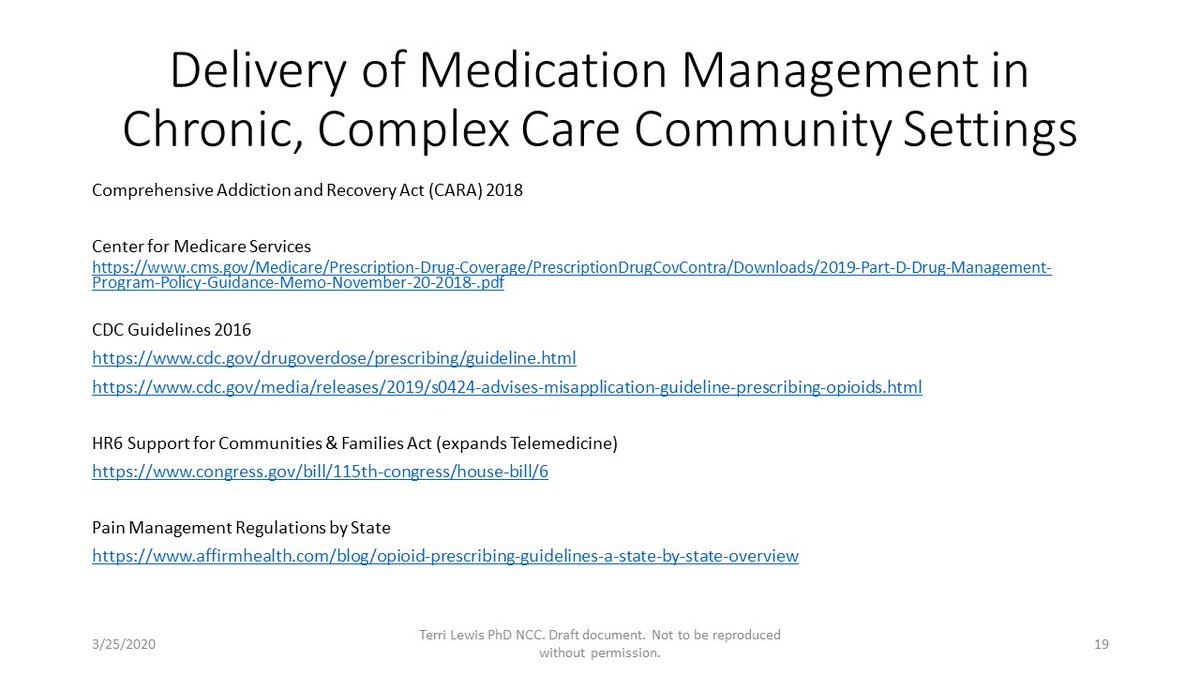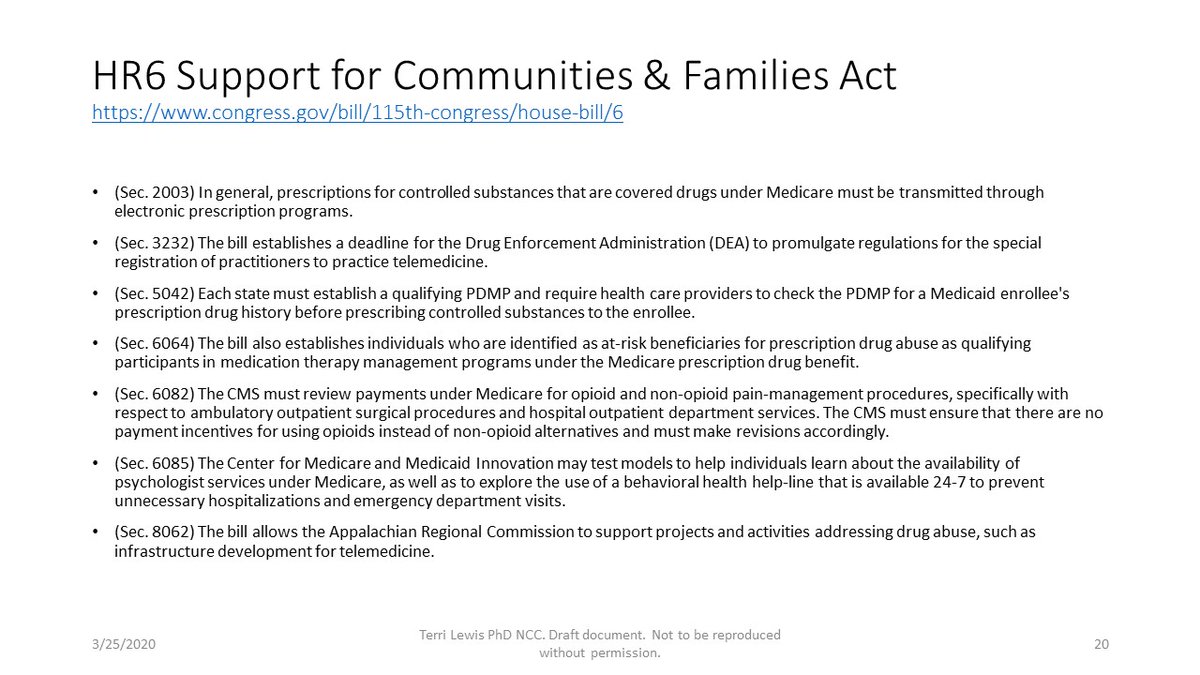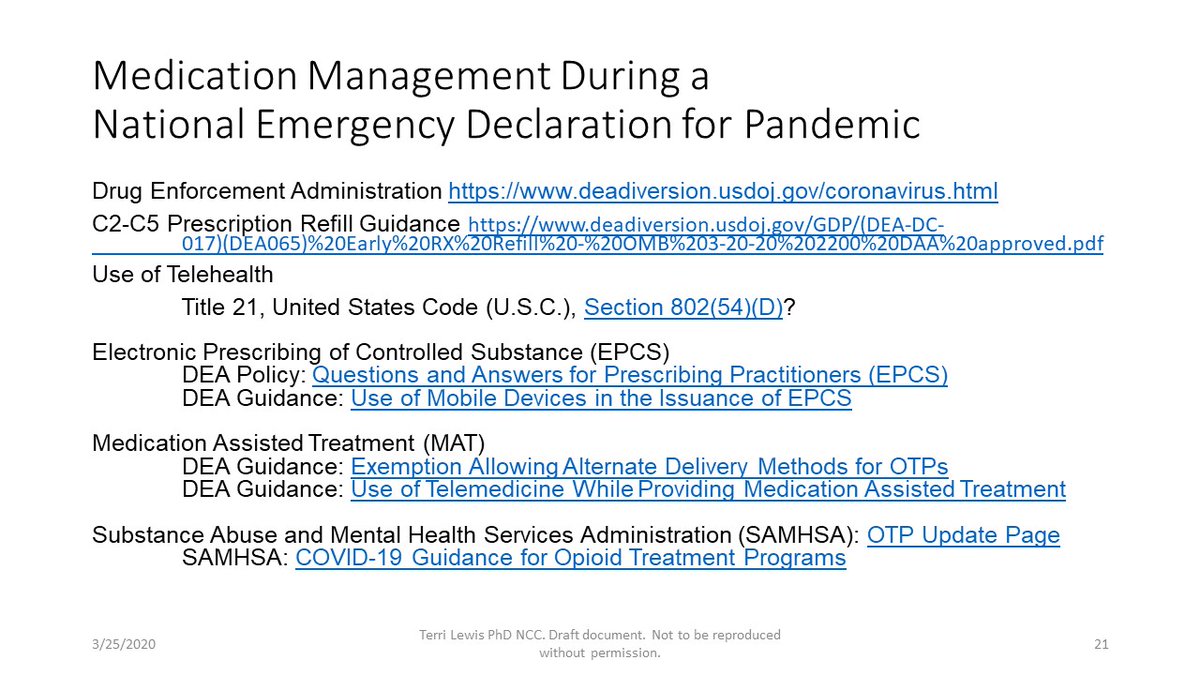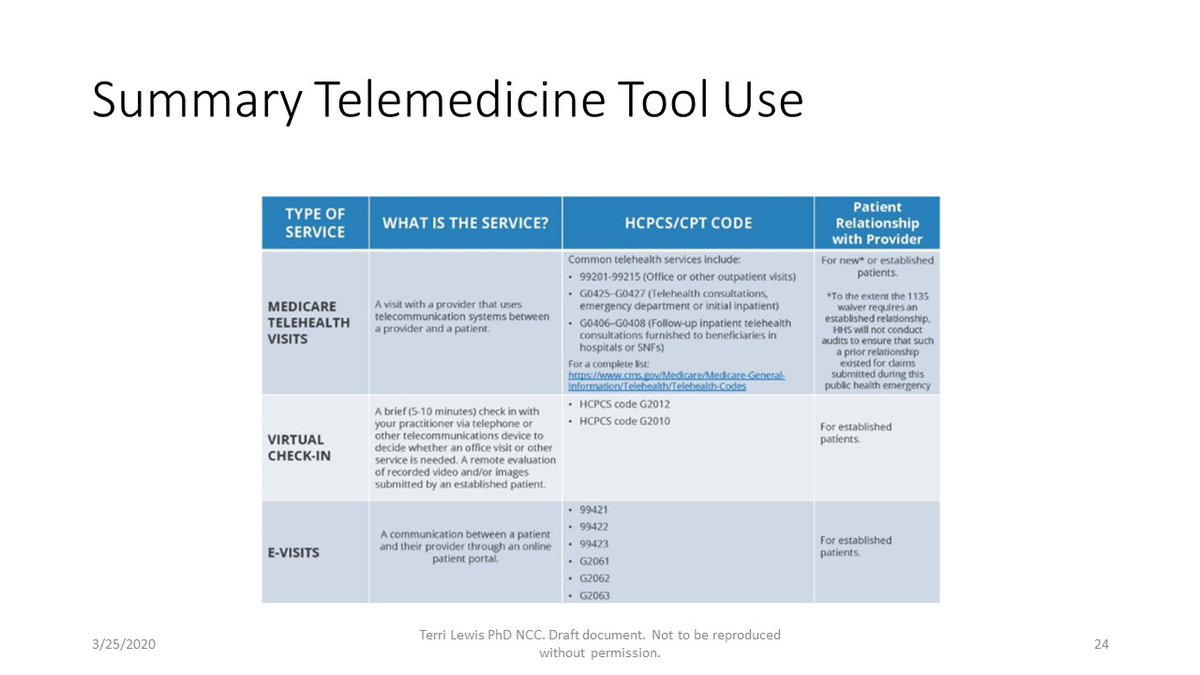DEA Guidance links on prescribing of controlled substances during a national health emergency https://www.deadiversion.usdoj.gov/coronavirus.html">https://www.deadiversion.usdoj.gov/coronavir...
Virtual checkins and evisits https://www.medicare.gov/coverage/virtual-check-ins">https://www.medicare.gov/coverage/...
How do we as clinicians and patients with unique health needs survive in this chaotic environment of health care? Between regulatory changes, variable state rules, and a pandemic we& #39;re suffering and afraid to move.
What does legitimate medical purpose and corresponding responsibility mean to patients, clinicians and pharmacists? What does it mean to regulators and enforcement agents? What does it mean in a pandemic?
Is there a quantifiable and qualifiable difference between health care delivered in community versus institutitional settings? Are the questions and processes different? How?
I& #39;m a person with chronic health care needs. How do I get the care I need when all around me physicians are afraid to treat me? What distinguishes my needs from acute care?
I really need community delivered palliative care that helps me maintain my independence for as long as possible. How can I get folks to understand that while I need coordinated care, I& #39;m not dying yet?
My insurance company doesn& #39;t seem to understand the difference between my needs and hospice care? Why not? What& #39;s wrong in these communications?
I am a chronic illness patient who needs multiple services and medication management. How can I get this across?
As a physician how do I document normal course of medical practice for chronic patients and distinguish it from institutional care or acute care?
Can I get the care I need in a non-hospital, non-institutional setting?
I want to stay at home with my family!
I want to stay at home with my family!
Where are the regulations and links to supports that I can use to convince my health care provider to employ a better strategy for both of us?
Document the treatment plan for your complex patients with the correct encounter codes that support medical necessity for palliative care.
CARA 2018 allows physicians and insurers to exempt the chronic care patient& #39;s medication management program for long term prescription management even if it includes opioids used alone or with other medications.
Document the treatment plan with the right pain management ICD-10 codes and Z51.5 when medical necessity for treatment includes services and office encounters for review and support of pain management as part of a treatment plan.
Here& #39;s a brief summary to illustrate how this might come together in your treatment plannning and billing system.
Medication management of controlled substances for patients with whom you have had at least one face to face evaluation meeting is possible using telehealth tools. Keep your staff, families, and patients #SaferAtHome
Links and codes to the use of telehealth.
@PublicHealth @NGA
We need to keep your vulnerable citizens #SaferAtHome
#FlattenTheCurve by suspending state rules to align with federal guidance to continue chronic care protocols through #telemed tools
@PublicHealth @NGA
We need to keep your vulnerable citizens #SaferAtHome
#FlattenTheCurve by suspending state rules to align with federal guidance to continue chronic care protocols through #telemed tools
@threadreaderapp Unroll

 Read on Twitter
Read on Twitter